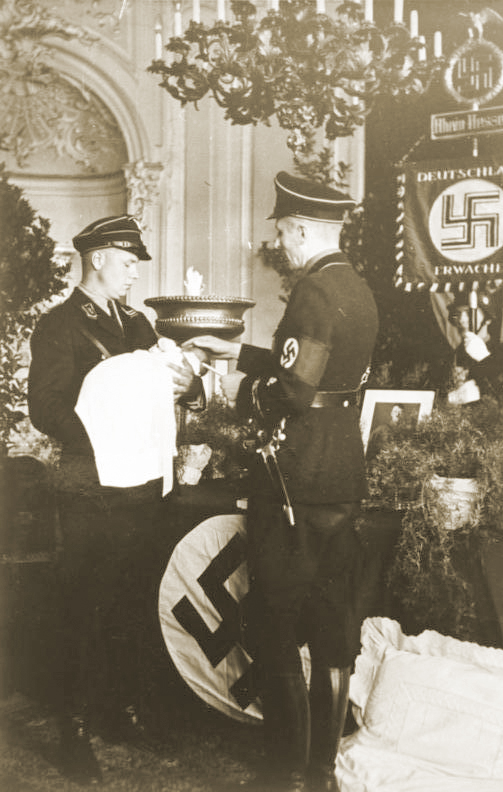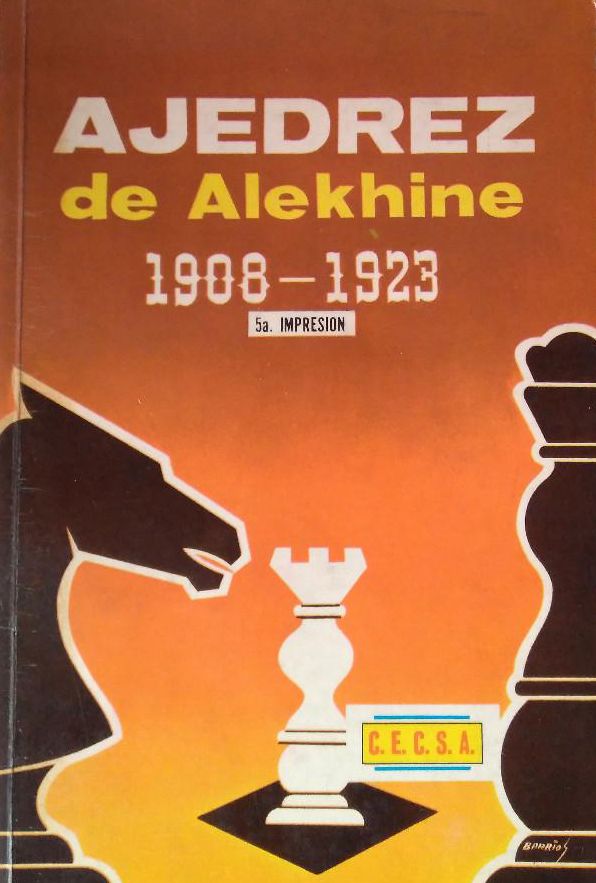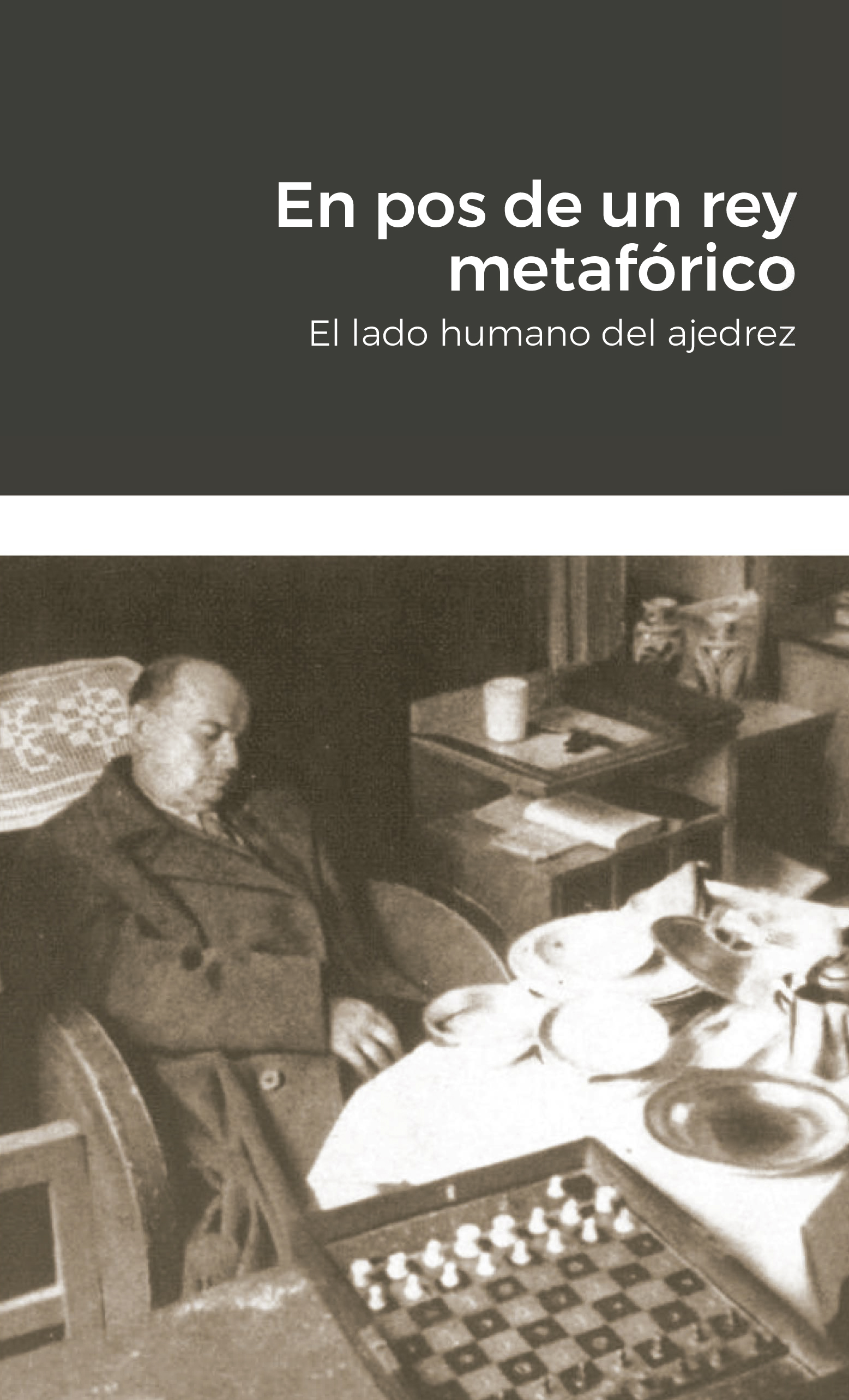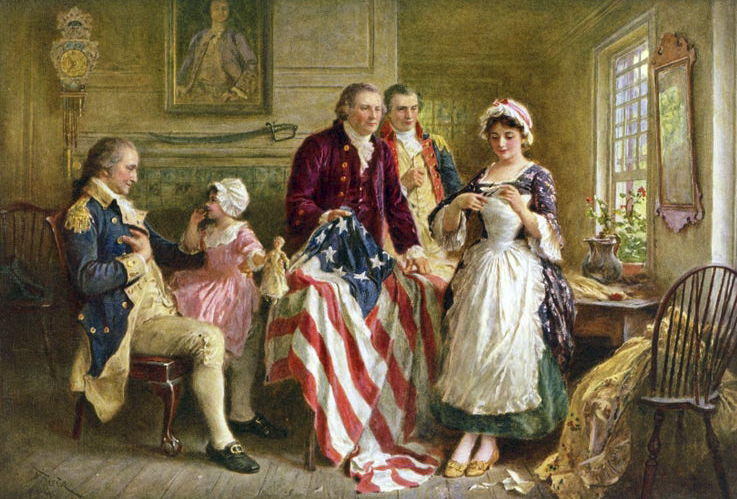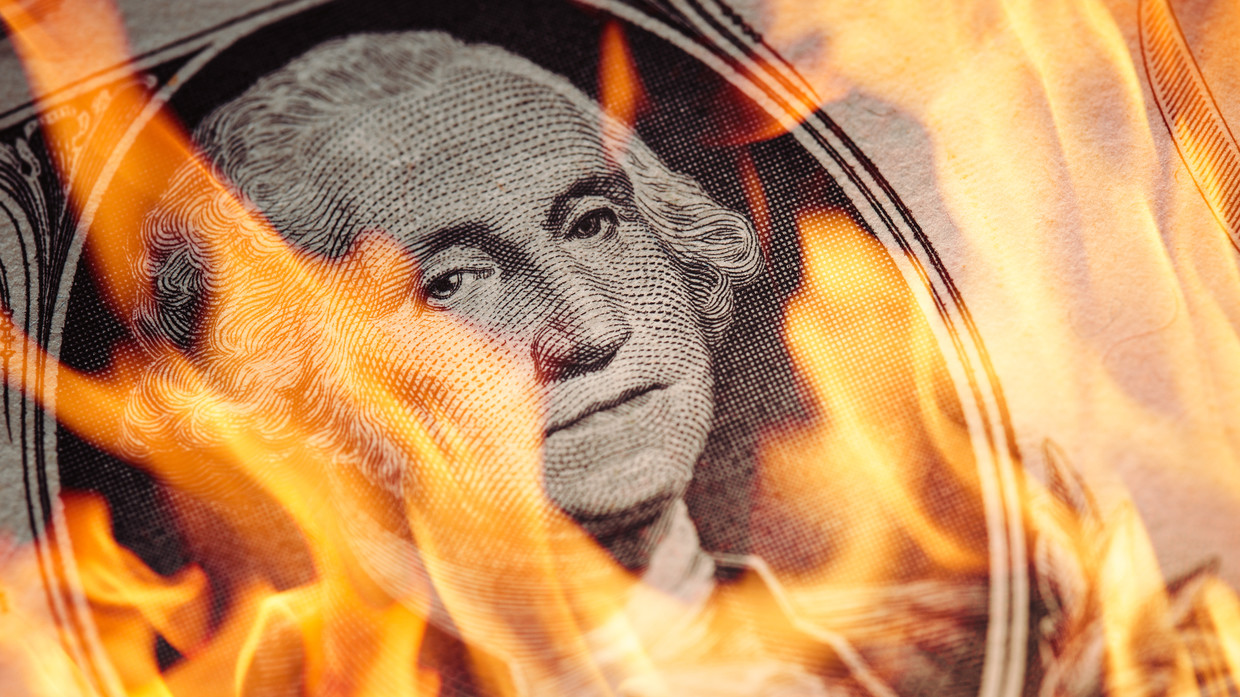‘Why do chess players grieve so much after a defeat?… Because defeat is like a little death’. —Manuel Suárez / Boris Zlotnik
What to do after defeat
None of the chess fans I know knows that mastery of the game is due to factors that have nothing to do with his will. Only in a small group of vocations can a human being aspire to be a child prodigy. Music, mathematics and chess are paradigms. Some compare Bach’s music with mathematics, whose logic is inherent, or a priori a Kantian would say, to the human mind. Also, as a special form of computation that is chess, early training can turn a child with special characteristics into a Capablanca, for whom chess was his mother tongue. The same can be said for Russian and former Soviet republics players who, unlike my very modest level when I played Monroy, reach grandmaster norm at fifteen or sixteen.
Few things have impressed me more than the autobiographical part of Capablanca’s My Chess Career. By winning a match against American Frank Marshall, the Cuban reached the level of a grandmaster without studying a single opening book. This is the most representative fact that I can think of to point out how someone with good genes who learned to play chess from the age of four, and developed the edge of his mind in that computational area, can become a world champion. Capablanca’s brain, the ‘chess machine’, was trained in the span of life in which one is capable of developing new faculties. That is why music conservatories do not admit students after a certain age. The same thing happens in chess.
The neurological development of certain areas of the brain differs between a Capablanca or fifteen-year-old GMs and the rest of the hobbyists. An even more terrible truth is that a high IQ is innate, and has to do with the ethnic group to which one belongs. Not having heard this, many have pursued the mirage that, through sheer study, they would become grandmasters as if it were something similar to obtaining a doctorate in physics. In reality, the rating that a young man learning the game in his twenties can develop is relatively modest, and even the level of a child or pubescent if he doesn’t have the right genes for this game. If we study chess to reach the equivalent of a doctorate, the knowledge acquired can help us to be excellent instructors, but it won’t necessarily allow us to play like the first boards in the world. Like the violin or piano prodigies, in chess what counts is how much we train certain areas of our brain in childhood, puberty and adolescence. Using a crude computational analogy, what really matters is the kind of software our brains were trained with, in addition to racial hardware (nowadays, there are no active chess GMs of the black race).
In the introduction I said that the talks of some amateur fans motivated me to write this book. One of these friends is called Alcides, who is well educated in chess. In the café where we talked Alcides played matches with Yayo, who doesn’t read chess and doesn’t even know how to maintain the opposition in a king and pawn versus king ending. However, Yayo generally beat Alcides in matches. On several occasions I spoke with Alcides about the Lasker manual. He likes the original German version better than the shortened English and Spanish versions. One of these versions once wore on a coffee table, but as usual Lasker’s pupil was swept away by Yayo. Alcides is capable in his profession of computer science and handling of computers. But despite his chess and computational knowledge, his uneducated rival has a better brain to play chess. Let’s put it iconoclastically: Lasker’s manual, and in fact all the chess books that I know, are bad and anti-pedagogical because they don’t start from a vital axiom about the game: the development of certain brain areas differs among people and even among the races.
It is not my intention to discourage Caissa’s suitors. But the young aspiring would spare a lot of dreams if, at home or school, we had been given this elementary class in neurology and raciology. Personally, given my father’s talents in music and visual arts, that was where I could’ve excelled (think of prominent Mexican filmmakers in Hollywood like Cuarón, Iñárritu, and del Toro), not computational business like chess. But even if we take all of this into account, compared to Cuba the chess level in Mexico is low. If we add to this that many of us are ageing and that we don’t have good instructors, those Botvinnik and Averbach that the Russian children and lads had, it will be virtually impossible to make the quantum leap to become GMs. Here I can’t help but come to mind a photograph of instructor Botvinnik with a young Garri Kasparov next to him. It also comes to mind that both of Fischer’s parents were Jewish. His biological father was a brilliant mathematician (Ashkenazi Jews are the ethnic group ranked the highest on the IQ scale).
Listening to a thirteen-year-old boy play Beethoven’s concerto for violin and orchestra is like watching some children from the former Soviet republics play games of blitz. Such is the virtuosity of these Paganinis of Caissa that they give their colleagues a five-minute lead, by just two minutes of their own, and destroy them with diabolical precision. No matter how hard you study, you’ll never play blitz games like that: an infallible measurer of the level of a boy whose mother tongue had been chess. To meditate thoughtfully on what we read in chess literature, to put our games to Fritz to understand them better, to consult the Encyclopedia of Chess Openings to see where we made the imprecision, to play one tournament after another to accustom to fighting chess, may be instructive but not necessarily to jump significantly in skill level. At least not to take the leap that some young people fantasise about. Our brain is already formed, formatted I would dare to say.
Presently, the edge of my mind manifests itself in my speciality of understanding the psychic havoc that abusive parents cause—an area that has nothing to do with chess. Capablanca, who never undertook the chess study marathons that many unsuspecting do, played infinitely better than I and other inveterate scholars. I have said that few things have impressed me more than Capablanca beat a GM during a match without studying a single opening book (on another level, this is exactly what happened in Alcides’ matches with Yayo). At twenty Capablanca had not played a single match with a grandmaster, and he beat Marshall with a crushing score of +8 = 14 –1 (eight games won, fourteen draws and one loss). This is the fact that best illustrates what a genius is. If the pedagogues were humble enough to accept the innate deficiencies of the child, they would know that he won’t speak as fast as the Jew Ben Shapiro, or that he won’t obtain the title of GM of chess at thirteen as did the Nordic Magnus Carlsen, who would conquer the sceptre.
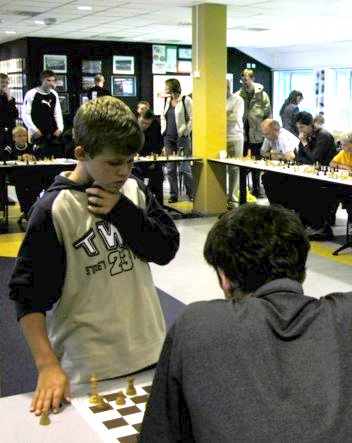 (Thirteen-year-old Carlsen in Norway giving a simultaneous exhibition.) We don’t need to rank high on verbal IQ, the speciality of the Jews, to become a champion. But we do need to rank high, like the Nordics, Slavs or Asians, in spatial intelligence. If you still want to play under these circumstances, my suggestion is that you write an intimate diary about your emotions in the game and your love of the game taking these facts into account.
(Thirteen-year-old Carlsen in Norway giving a simultaneous exhibition.) We don’t need to rank high on verbal IQ, the speciality of the Jews, to become a champion. But we do need to rank high, like the Nordics, Slavs or Asians, in spatial intelligence. If you still want to play under these circumstances, my suggestion is that you write an intimate diary about your emotions in the game and your love of the game taking these facts into account.
